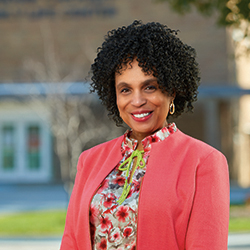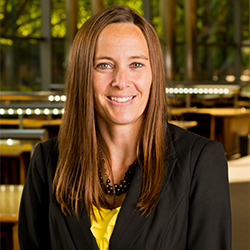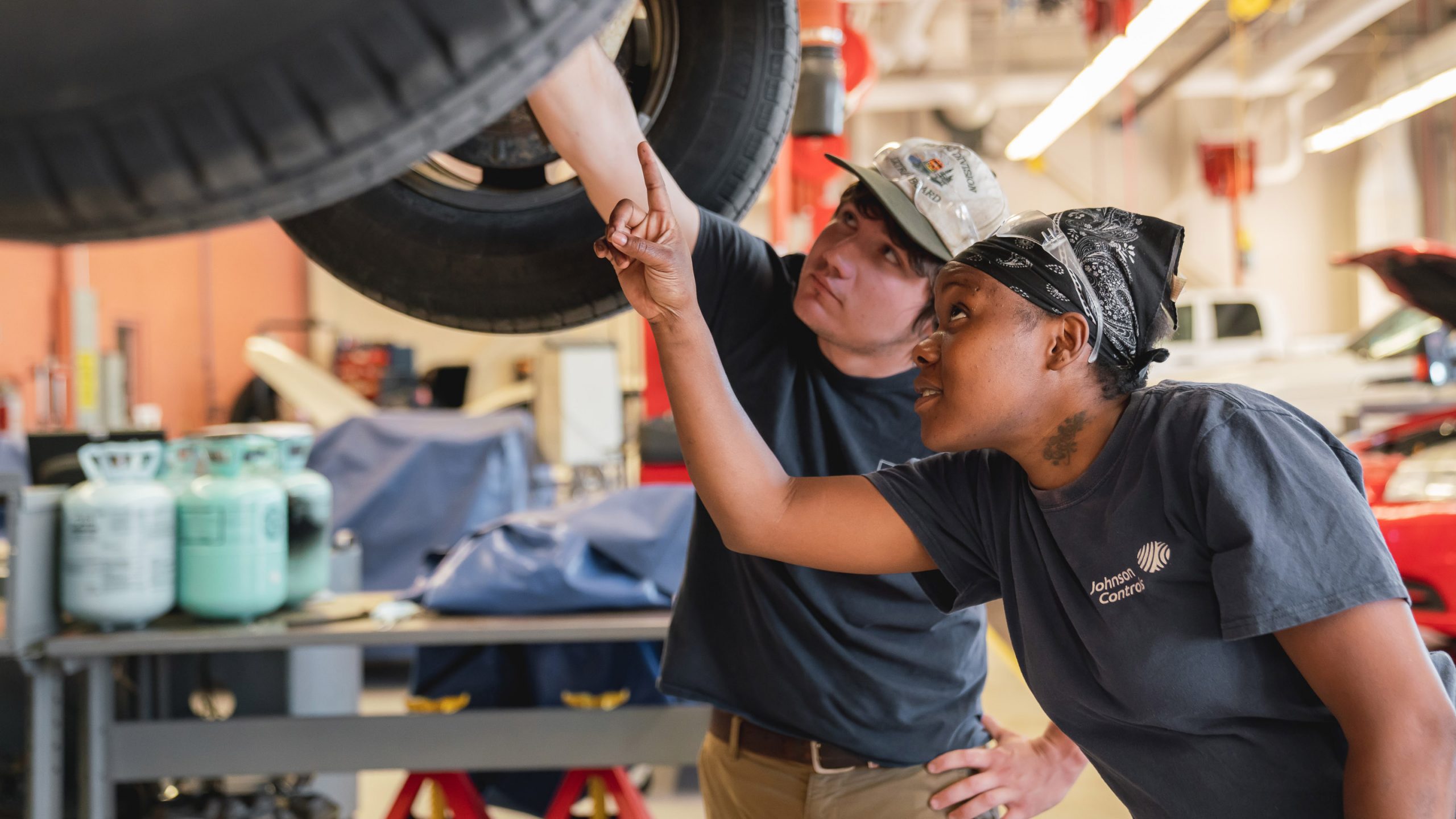
Efforts underway to foster more accepting and supportive workplaces
More than half of U.S. employers are now making diversity, equity and inclusion in the workplace a high priority, according to a survey of human resources decision-makers last year by Lever, a talent acquisition suite.
While similar, Genesee County-specific data is not available, there’s at least plenty of anecdotal evidence that DEI has also become an imperative for many local organizations.
Mott Community College, for example, is in the midst of a years-long effort to ensure that all students and faculty members feel welcomed and respected on campus, said MCC President Beverly Walker-Griffea.
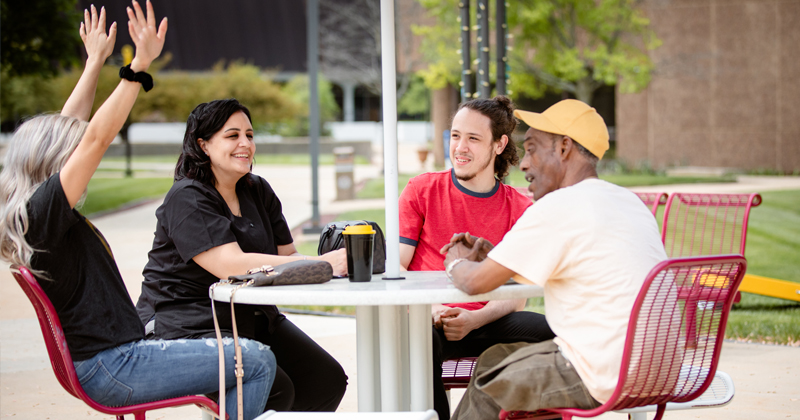
After determining there was a demand among local employers, the University of Michigan-Flint’s Business Engagement Center began offering DEI seminars on changing an organization’s culture to create a more accepting and supportive environment. The training sessions are designed and customized by David Luke, UM-Flint’s chief diversity officer.
And, responding to similar market forces, Flint-based human resources consultant Marc Rideout has made DEI strategies somewhat of a subspeciality.
Behind the trend are both societal shifts and practical, bottom-line business considerations, said Rideout, president of Corporate Human Resource Solutions, Inc.
“I think what’s fueling it is a change of demographics,” he said. “We are moving slowly toward a majority minority country,” meaning whites will eventually make up less than 50 percent of the population.
And that means that, in a tight labor market, company managers might need to broaden their pool of prospective workers to become fully staffed.
“If you want to survive as a business and fill those positions in your company, you’ve got to expand your recruiting zone beyond your comfort zone and get into areas you maybe aren’t so comfortable with,” he said. “The second part of that is, however, you can’t do that unless you have an empathy and an understanding of the workforce that you’re trying to recruit from.”
And increasingly, newer generations of leaders do have that empathy, he said. “As they’re moving into leadership positions, they’re starting to reflect some of the cultural changes that took place in America in the ’70s, ’80s and ’90s. (This generation has) been waiting in the wings and now they have the power to make decisions.”
Civility on campus
Walker-Griffea was already well aware of MCC’s traditional role of providing affordable education to the region’s residents when she became college president in 2014.
“We’ve been doing this for 98 years now, really trying to meet the needs of this community,” she said. “Mott Community College was started with the insight that there needed to be education for all. Part of our mission is recognizing that this is a multicultural community and MCC helps improve lives and sustain the community.”
The college provides education and job training opportunities to one out of every two households in the county. But at the same time, Black people were underrepresented on the MCC campus, given the demographics of the greater community, Walker-Griffea said. They made up 14.4 percent of the student body, compared with 19.6 percent of the general Genesee County population and nearly 54 percent of Flint residents.
“Can we do better?” Walker-Griffea said. “I think as we looked at the statistics as a board and as a college, we came to say yes, we can do better.”
That realization sparked a series of actions, including:
- Bus tours of local neighborhoods so that college leaders could better understand what students’ lives were like.
- A listening tour of employees and students by Walker-Griffea — “one of the most important things that I did,” she said. “It was clear that we needed to do more with communications. Almost always, that’s what the groups ended with: We need to talk and be able to share with one another on a personal level.”
- The creation of the MCC Council, which was charged with strengthening the institution’s commitment to inclusiveness.
- An audit and focus groups, which led to the discovery that 70 percent of Black students said that they had experienced racism at MCC. “I think that was shocking for our leadership to hear that,” Walker-Griffea said.
- The naming in May 2018, the MCC board approved DEI as an institutional priority.
The process also involved the adoption of a civility policy by the MCC board: “Mott Community College encourages and promotes an environment of civility and mutual respect among its diverse employees and student body. Faculty, staff, and students should treat one another in a respectful manner with civility, honesty, and courtesy. Each individual is expected to have regard for the dignity and needs of the people with whom they work and interact. Employees and students are reminded that freedom of expression comes with a responsibility to respect the rights and reputations of others.”
Other organizations that are interested in pursuing DEI strategies, including private businesses, can learn from Mott Community College’s experiences, Walker-Griffea said.
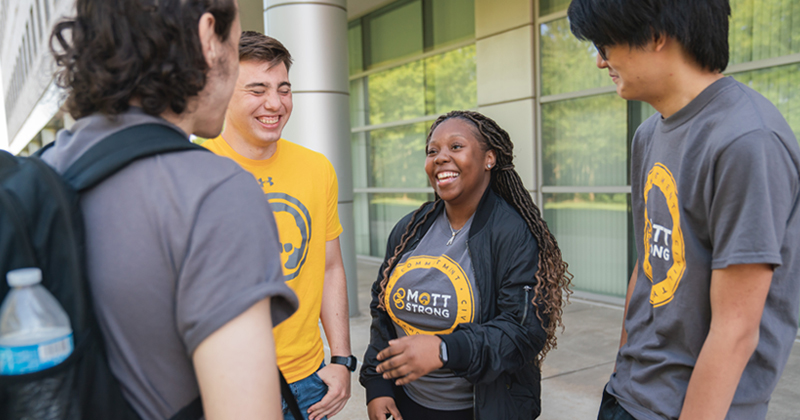
“I think that No. 1 is making sure that you’re developing trust in your organization and that you’re listening to all persons in your organization and that you have sessions that allow people to be heard,” she said, adding that specific actions must result from those confabs.
It’s also crucial to ensure that any outside consultants who are enlisted to develop DEI initiatives are well versed in the organization’s culture.
“A third thing is to go through intentional training with leadership on how to have courageous conversations,” Walker-Griffea said. “Many people don’t know how to do that. You want to teach everybody in your business to have ability to speak up about improving operations or pointing out problems. People must learn how to speak out and be courageous and be great.”
Filling a need
Like MCC, UM-Flint for years has worked to make DEI part of its culture, said Sara Barton, associate director for business engagement.
Now, it’s aiming to share those lessons with the greater community by offering DEI seminars to organizations that request them.
“One of the things that I do is find out what are the needs of the business community and how can we as a university fill that gap,” Barton said. “Our chancellor is very visionary and he understands that if there’s a topic that’s maybe newer to the community, that we as an institution should have the knowledge and expertise in that area.”
While the seminars are tailored to each organization’s needs, “they’re all really around the same concept: unconscious bias — how are we aware of it, how do we manage it and how does that affect our thinking,” Barton said.
Organizations that request seminars have one overarching goal: to better serve their customers and audiences, Barton said.
“For example, in the health care realm, if your nurses and your doctors and your practitioners don’t reflect your clients, then your clients are not being served as well because they may be uncomfortable in sharing their experiences,” she said.
Another desire is to promote job opportunities among underrepresented populations. “People don’t know what they don’t know,” Barton said, giving the example of detailing the career pathway to becoming a nurse to a prospective minority student who otherwise would lack the information.
Successful outreach could have a far-reaching impact by not only leading to a satisfying career for the student but also creating a professional who’s able to relate to particular patient populations, Barton said.
The UM-Flint seminars typically run for one to three hours and are meant to help organizations jump-start their DEI strategies, not provide detailed, step-by-step guidance for implementing a policy, Barton said. More information, including how to request a seminar, is available by emailing bec.flint@umich.edu.
Rideout said that DEI initiatives will often fail if an organization’s leadership does not address existing cultural biases that have become embedded in the thought and behavior process of the current employees.
“DEI is really about hiring and involving people different from who you currently have in your organization,” he said. “I don’t like all the ‘ism’ labels (racism, sexism, ageism, etc.) because it limits thinking. What I usually ask clients is simple: ‘Do you want to have people here who are different than you?’
“DEI starts with the ownership and leadership of the organization,” he continued. “There has to be a belief that this is good business, not just something that is ‘the right thing’ or the ‘fad of the year.’ That’s why the first question is important: ‘Do you want to have people here who are different than you?” If the answer is yes, then the next question is, ‘Are you ready to address your own biases and blind spots about people who are different than you?’”
It’s also important to have champions within the organization who are willing to help and guide new employees as they onboard and assimilate, he said. “Think in terms of the first time a new elementary student might switch schools and have to go to a new classroom,” Rideout said. “How would they feel? Unsure, afraid, asking ‘will I fit in?’ Same thing when you are now implementing a DEI program. You have to have employees who are open, honest, willing to help, not afraid to support the new employee, to help them, guide them, share with them.”
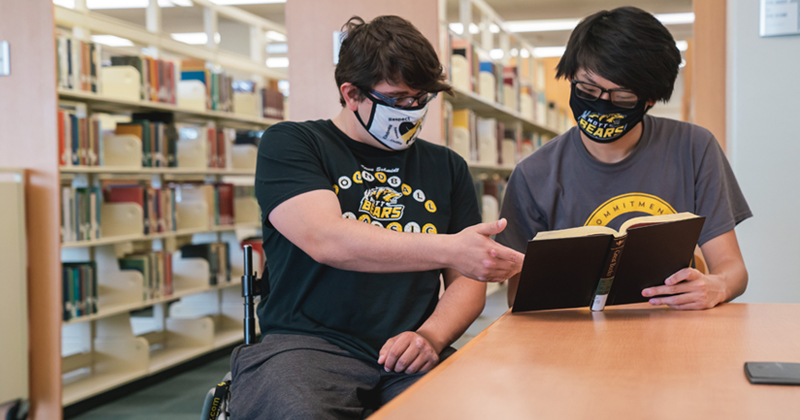
Just because a prospective employee has a disability, speaks a different language or has made mistakes in their lives does not disqualify them from being “a whole person with much to contribute,” Rideout said.
“So once you get an employee, you have to be ready to address issues on their level,” he said. “For example, I have a client who hires ex-offenders and prefers to get them while they are still on probation. They know that these employees have a built-in ‘extra supervisor,’ the probation/parole officer, who wants them to succeed and will help coach the returning citizen on getting to work on time and other issues.”
The employer also understands that the employee will need to take time off to meet with the PO and provide urine samples, and also may not have reliable transportation, he said.
“So this employer does not use the ‘gotcha’ system to punish an employee if they are 15 minutes late,” Rideout said. “They find out what the issue is, and whether or not they can help.
“One employee walked 30 minutes in a blinding snowstorm to catch her bus and the bus was late. This woman had been incarcerated for 15 years and wanted to prove her worth. She would do whatever it took to succeed. Some employers would have penalized this employee. They did not.”
Perspectives on on Diversity, Equity & Inclusion
“We’ve been doing this for 98 years now, really trying to meet the needs of this community. Mott Community College was started with the insight that there needed to be education for all. Part of our mission is recognizing that this is a multicultural community and MCC helps improve lives and sustain the community.”
Dr. Beverly Walker-Griffea
“There has to be a belief that this is good business, not just something that is ‘the right thing’ or the ‘fad of the year.’ That’s why the first question is important: ‘Do you want to have people here who are different than you?’ If the answer is yes, then the next question is, ‘Are you ready to address your own biases and blind spots about people who are different than you?’”
Marc Rideout
While the University of Michigan-Flint DEI seminars are tailored to each organization’s needs, “they’re all really around the same concept: unconscious bias — how are we aware of it, how do we manage it and how does that affect our thinking.”
Sara Barton

